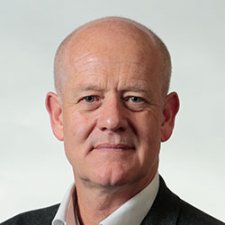
This is an important and exciting international project. Hypoglycaemia is one of the most burdensome aspects of living with diabetes and deserves to be at the forefront of patient-centered research. The project is unique in addressing the problem of hypoglycaemia from a 360 degrees perspective. I am confident that this consortium of industry, fundamental researchers, clinicians and behavioural scientists, will make a significant contribution to improving the lives of many people with diabetes dealing with the burden of hypoglycaemia.
Frank SnoekVU university medical center (VUmc)

In my opinion, the most exciting aspect of this unique project is its aim to clarify in more detail the role of the brain in hypoglycaemia counterregulation. In rodent models of type 1 diabetes and IAH, studies will focus on dishabituation (restoration of counterregulation) and on genetics in hypothalamic neurons involved in the glucagon response to hypoglycaemia. Also, the planned studies on cardiac consequences of recurrent hypoglycaemia in high-risk type 2diabetes are interesting and warranted.
Marit BjörgaasNorwegian University of Science and Technology (NTNU)

I am extremely excited to be an advisor to such an interesting project as Hypo-RESOLVE. Being a coordinator of another IMI2 project, INNODIA, on biomarker discovery and clinical trial networking in type 1 diabetes, I will transmit any of our pioneering experience in this exciting concept of academic-private partnerships that IMI represents. Moreover, as a clinician, being part of a project studying one of the most important hurdles to good glycemic control and contributors to impaired quality of life in our patients with diabetes and their families, is of great value.
Chantal MathieuINNODIA

This project provides a unique opportunity to better understand the underlying mechanisms and clinical determinants of hypoglycaemia in order to minimise its health, psychological and economic consequences for people with diabetes. It brings together leading clinical academic, basic science, psychosocial and health economic researchers supported by unprecedented industry cooperation, international diabetes organisations and an experienced project management team to ensure its success. I wish the investigators every success and look forward to the results, which will contribute to reducing the burden of hypoglycaemia for people with diabetes.
Helen MurphyUniversity of East Anglia